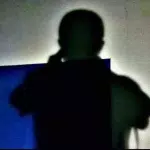The Greyhound bus crosses the narrow causeway over the sea, arriving at Key West, Florida, which resembles the "vessels of the sea" that reach out like tentacles toward Cuba. Retired UFC champion Elwood Dalton, played by Jake Gyllenhaal, gets off the bus and walks toward a bookstore by the roadside. He tells the young girl tending the store that he is looking for a bar called the "Road House" to work there.

"What other job is there at a bar?" the little girl asks curiously.
"The owner is having a little trouble, I guess. I'm just here to clear it up," Dalton replies casually.
"That kinda sounds like the plot to a Western. Like local townsfolk send(ing) for a hero to help clean up the rowdy saloon. You know that crap?" Her response summarizes the plot of the upcoming modern Western film "Road House."
Indeed, as the little girl predicted, "Road House" is a complete rehash of a Western, transplanted to Florida and transformed into a mindless modern action flick. It is a remake of the 1989 film of the same name. A fighting expert is hired to work at a small-town bar, only to find a bunch of picky troublemakers and a gang colluding with politicians. Throughout the process of resolving issues, there's an inevitable display of bare-chested men, flexing muscles, and bone-crushing fights.

Recall the typical scenes from classic Western films. Cowboys wear hats that obscure their faces. The protagonist dismounts from his horse, pushes open the creaking doors of a saloon, takes a seat at the bar, and in an atmosphere of stillness, waits for an inevitable gunfight at the slightest provocation. Now, imagine the Western setting being replaced with an Eastern one, the whistling guitar tunes with electronic beats, the old horse with a Harley-Davidson motorcycle, the sandy terrain with a beach, and the revolver with a dagger. With that, there's now new wine in an old bottle.
In "Road House," Dalton briefly mentions his past, hailing from Montana, a state steeped in the lore of the Old West. This character background might be an intentional setup by the filmmakers. In "Brokeback Mountain," the film that helped establish Gyllenhaal's fame, he portrays Jack Twist, a cowboy from Lightning Flat, Montana.

In the rare but attention-grabbing realm of contemporary Western films, Montana has emerged as almost the sole setting for both storylines and filming locations. I'm talking about Paramount Network's long-running series, "Yellowstone," as well as its spin-offs, "1883" and "1923."
Since the spread of the Westward Expansion to Montana in 1883, the Dutton family has been the owner of the largest ranch in the Yellowstone region. Over 150 years, it has battled against various forces, from indigenous peoples to outside property developers. Through a series of both straight as well as shady means, they assert the inviolable sacredness of private properties and individual rights, which are seen as the foundation stones of the United States. In the opening scene of the seventh episode of the first season of "Yellowstone," several members of a Chinese tour group trespass on the Dutton territory, prompting John Dutton, the head of the family, to raise his gun and warn them to leave immediately. Confused by cultural differences, one of the Chinese tourists comments that "it's wrong for one man to own all this."

Conflicts are mostly deeply rooted in traditional Western films produced in the era of the Westward Expansion, where the majority revolve around the ruthless pursuit of wealth and land. However, in modern Western narratives like "Yellowstone," in order to create more fleshed out characters and intricate plot conflicts, elements from classic Eastern stories are often borrowed and repurposed. At least in the first season, the characters and story developments are a complete copy of "The Godfather," set in New York. The Dutton family consists of three brothers and a sister, who is the second child in the family, just like the Corleone family in "The Godfather," whose eldest brother tragically gets killed, leaving the youngest brother to rise above adversities. It's not until the later seasons, when more diverse outside developers and financial institutions are introduced as adversaries, that the audience begins to forget the initial "The Godfather" framework. These outside magnates clearly represent the villains typical of Western genre films. Of course, the Dutton family is far from virtuous, often resorting to ruthless and malicious means to survive in dire situations, thus embodying another typical element of Westerns—using violence to counter violence.

Indeed, given its lengthy and artistically driven nature, compared to "Road House," the methods employed by the real cowboys in "Yellowstone" to resolve conflicts tend to be more calculated and diverse. At least from the perspective of these two works with distinctly different styles, if a modern cowboy wants a straightforward brawl, he should head to the wet and wild "Road House" in Key West, Florida. But if he prefers to engage in intricate machinations to drive his opponents to their death, then staying in the dry and high environs of "Yellowstone" in the depths of the Montana mountains and valleys is the way to go.







Share your thoughts!
Be the first to start the conversation.